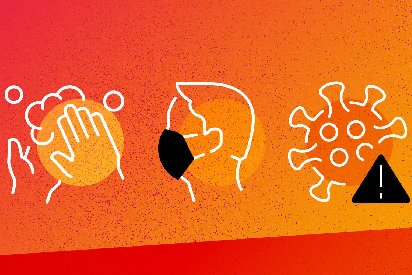Preventing mental strain
What should companies do to prevent psychological strain during a crisis?
Managers and EHS specialists often also face the added pressure of needing to quickly recognize strain and work against it. They must quickly and flexibly strike out on new and unknown paths, especially when cooperation and leadership have to happen from a distance and employees need to work with technologies that are not usually part of their regular routine. Uncertainties associated with this can lead to mistrust and feelings of subordination among the workforce. That’s why it’s even more important to approach things with sensitivity, empathy and trust, because while employees are making an effort to continue their work in an unusual situation, they can quickly reach their limits.
Nicole Scheibner and Alexander Tirpitz recommend that managers actively figure out what uncertainties and questions their team has in this situation. They should also be having regular one-on-ones with individual employees, and ask each of them how well they are able to cope with the situation and how the company can better support them. You should never wait for employees to come to you themselves with problems. The strongest recommendation is to approach this proactively. Among other things, this means making the work itself as low strain as possible and to create a virtual space for breaks, questions, team and individual problems. “When you aren’t seeing your employees regularly, you should not assume that everyone is coping just fine. Take time to ask questions and handle the technical and organizational aspects needed to make employees’ work as efficient and normal-feeling as possible by providing the equipment and the instructions they need,” the experts recommend.
Balancing expectations and reality
Employees should be able to structure their workdays as close to normal as possible, stick to their usual routines and keep a healthy separation between their work and private lives. Additionally, managers should do their best to ensure that employees’ concentration levels are not overloaded by multiple calls, emails and video chats. The best-case scenario is transparent communication regarding who is available when with partners, customers and the team itself. This lets employees use block of times for concentrated deep work and breaks.
Especially in difficult times, it is important to make the digital space as close to the “normal” world as possible and work towards strengthening relationships with one another. By regularly communicating and making group decisions, everyone will feel heard and seen and misunderstandings can be discussed right away. Scheibner and Tirpitz recommend that managers ask for their employees’ understanding that changed working times due to childcare or shift work mean that everyone is not available as usual and help employees to estimate when they need to stop so they don’t overload themselves.







